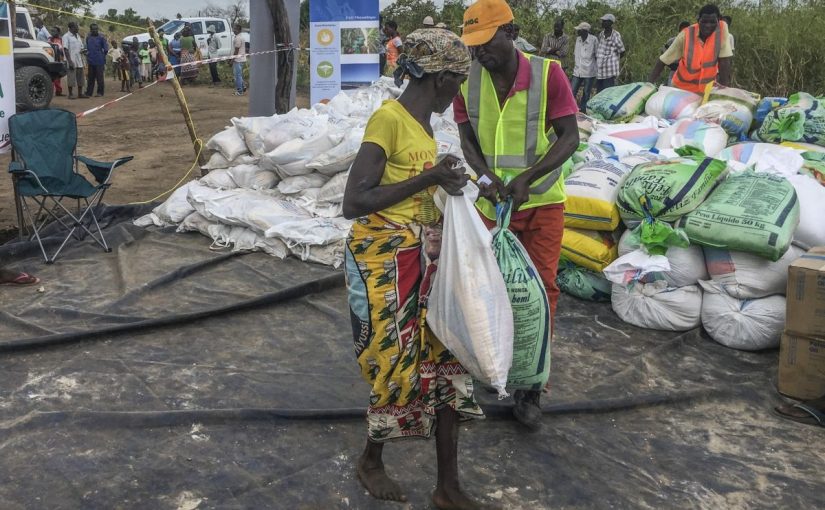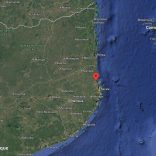Mozambique: Maputo-KaTembe bridge will be closed from 10:00 p.m. Tuesday to 4:00 a.m. Wednesday
Mozambique: Around 1.7 million people in need of food – World Food Program

Photo: Lusa
About 1.7 million people in Mozambique affected by tropical Cyclone Idai will need food in the upcoming months, Pedro Matos, emergency coordinator for the World Food Program (WFP), warned on Tuesday, adding that the organisation was outstripped by the needs.
“We need $130 million (€115 million) in the next three months to feed 1.7 million people who were affected, and we only have funding of 20%”, Matos told Lusa.
A month after the devastating cyclone, the WFP has helped one million people in the provinces of Sofala, Manica, Tete and Zambeza, distributing 400 tonnes of food every day.
Emergency aid in the Cyclone Idai aftermath represents 5% of the organisation’s budget since it works in 84 countries and feeds 94 million people per day.
“The money is not enough,” the coordinator of the United Nation’s programme said, adding that the WFP had only received $27 million out of the $130 million it needs to feed the population.
The WFP was created in 1961 and is funded entirely through contributions by governments and individuals.
“Every year we start from scratch and every time there is an emergency we have to go looking for funds,” Matos added, highlighting that WFP manages an annual budget of $7 billion (€6.2 billion) for widespread disasters.
“In a world that has Syria, Yemen, north of Nigeria and South Sudan, the money is not enough,” he said.
Basic food baskets being distributed to victims of cyclone Idai provide 2,100 calories per person and include carbohydrates like rice or corn, pulses including beans or lentils, cereals, oil and salt.
These will be distributed every 15 days “until the situation stabilises,” Matos explained, and then they will be distributed monthly.
People who cannot grow their food will receive this help for a year, he added.
However, if the funding needed is not obtained, the quantity of food distributed will be reduced, he lamented.
Matos also said that in the city of Beira in central Mozambique, the main region affected by the cyclone, an “intermediate” solution had been found through an agreement with shop merchants and tokens which can be exchanged for food items.
The WFP also distributes seeds so that people can produce their own food and Matos said it was necessary to “demystify” the idea that “poorer people or people affected by catastrophes are unable to do anything or to produce anything.”
Mozambique does not yet have structured distribution centres, so “an estimate of the number of people in a town is carried out and that the food is dropped by helicopter, with the distribution made by the leaders of the local communities”, he explained.
The WFP arrived in Mozambique in September to gear up for the emergency period, which usually occurs between September and April, but no one could imagine the catastrophe that was about to hit the country.
Cyclone Idai swept through Mozambique’s central region, Malawi and Zimbabwe on March 14.
It knocked down communication towers and electricity cables in Beira, and damaged the water supply system, leading to a cholera outbreak.
In Mozambique, according to the National Institute of Disaster Management (INGC), the cyclone has affected 1.5 million people, killed 603 and injured 1,642.
In Zimbabwe, authorities say Cyclone Idai has killed 344 people and in Malawi, the floods caused 59 deaths and almost 900 injuries.












Leave a Reply
Be the First to Comment!
You must be logged in to post a comment.
You must be logged in to post a comment.